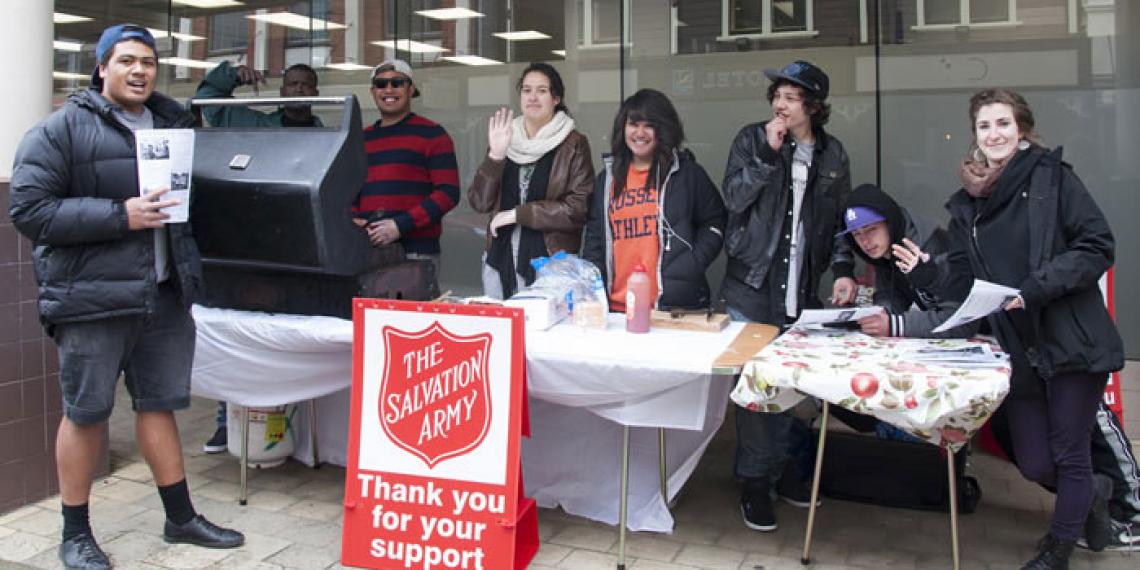You are here
Looking for a place to call home

The Salvation Army captain and leader of Wellington 614 Corps says what they are seeking is a place to belong and a way to contribute to their community.
‘That’s why we encourage as much as we can for youth to contribute, to help others,’ he says. ‘It gives them the satisfaction of helping others and helps establish who they are and their place in the community.’
614 is a faith community in inner-city Wellington. Its main aim is to bring together youth living on the margins—many of them homeless or estranged from their families—and help them find their direction in life and a community to call home.
Some were under the care of Child, Youth and Family, which ceased when they turned 17. In a city where 25 per cent of teenagers are unemployed, the great majority of 614 youth are desperate for work, says Tim.
Wellington 614 is part of a network of 17 similar communities worldwide, where staff and volunteers live in the neighbourhoods in which they work, mainly with the urban poor and vulnerable.
614 operates two residential houses providing transitional accommodation for young homeless men and women. It runs several programmes at a local high school, one designed specifically for Maori students.
The programmes help foster confidence, self-esteem and teamwork, with a particular focus on developing leadership and active citizenship among teens. Participants have been identified by the school as benefitting from additional support.
In addition, 614 hosts a weekly community meal attracting around 40 young people and operates Street Beat, a van that parks in the central city on Friday nights, offering hot drinks and food, games and a safe place for youth to hang out.
Annika first became involved in a 614 programme at high school, went through a troubled period and is now a trainee youth worker with the group. She says 614 members tend to stay connected, even those who were on programmes several years ago.
‘I think youth are looking mainly for a place to belong,’ she says. ‘And I think 614 is perfect because it really has the feel of a family—they see that and they want to be a part of it.’
The service is partially self-funded. 614 youth run various fundraising projects. It operates its own boutique Family Store, with retro label and vintage items. Profits are ploughed back into services and overheads.
614 has leased, centrally-located offices and a drop-in centre, which are in a bad state of repair. But its other services are scattered across the city. The long-term vision, says Tim, is to find a new base in the inner-city that can accommodate the entire 614 range of services to create a better sense of community—a place they can call home.
For more about how 614 youth are raising funds for their services, visit facebook.com/SalvationArmyBoutique